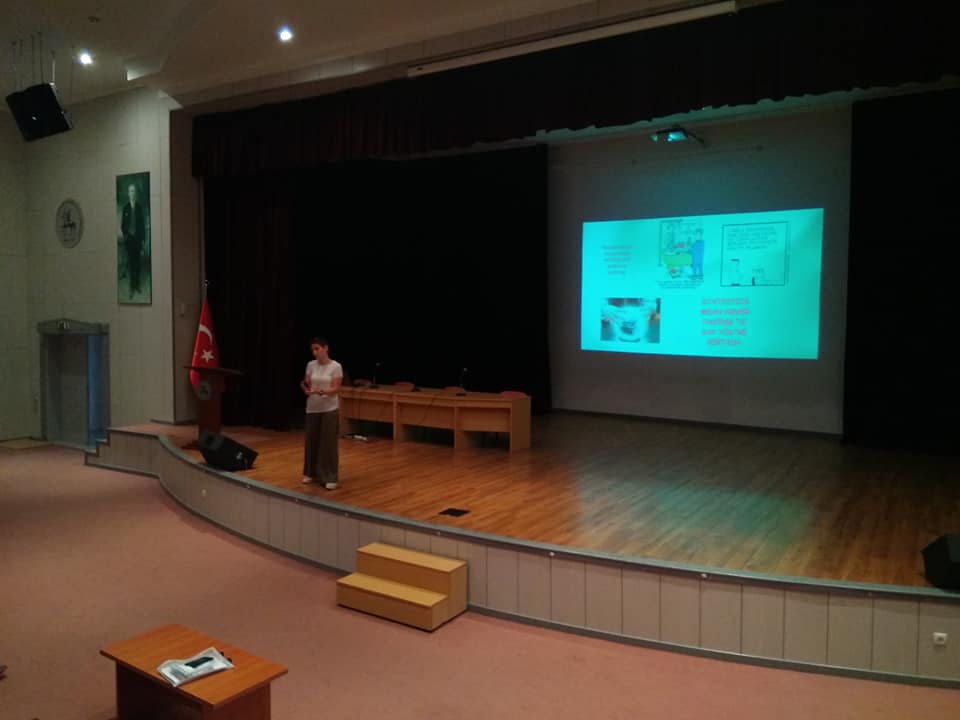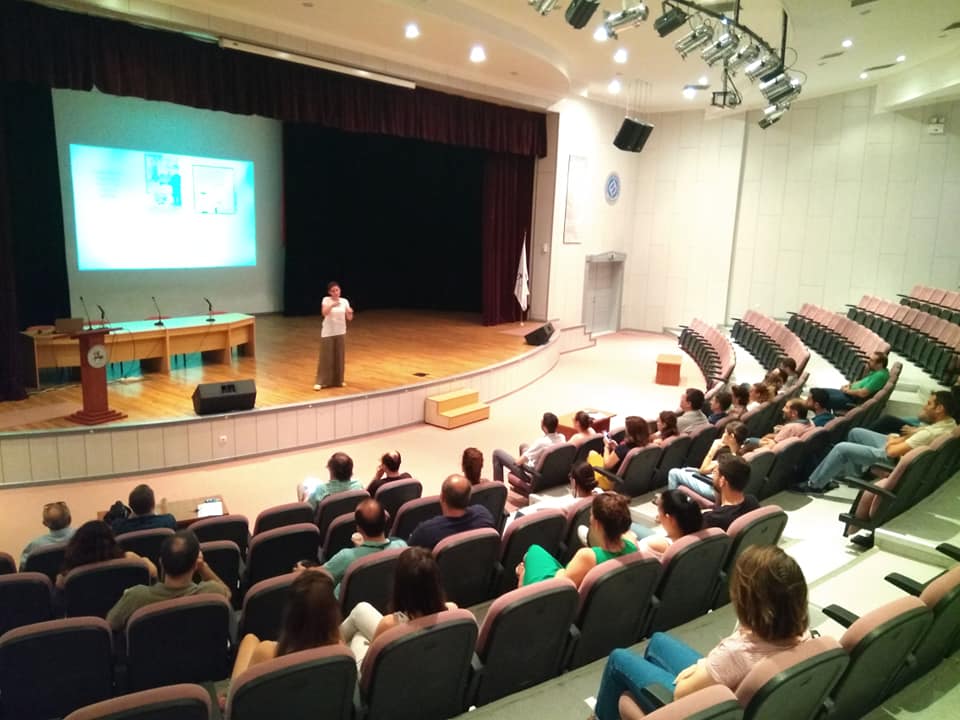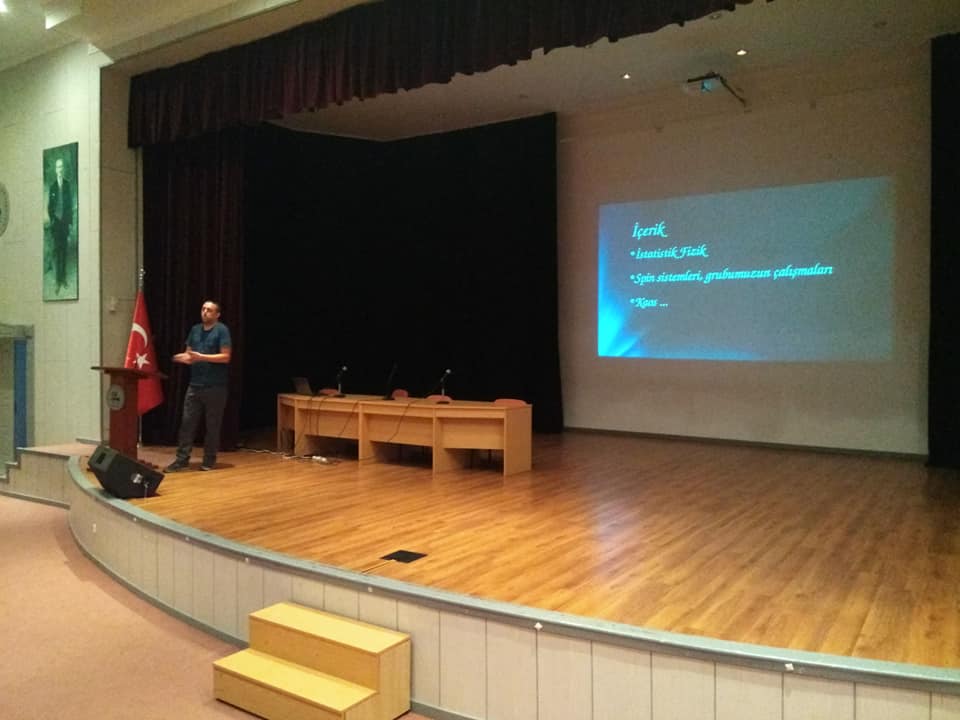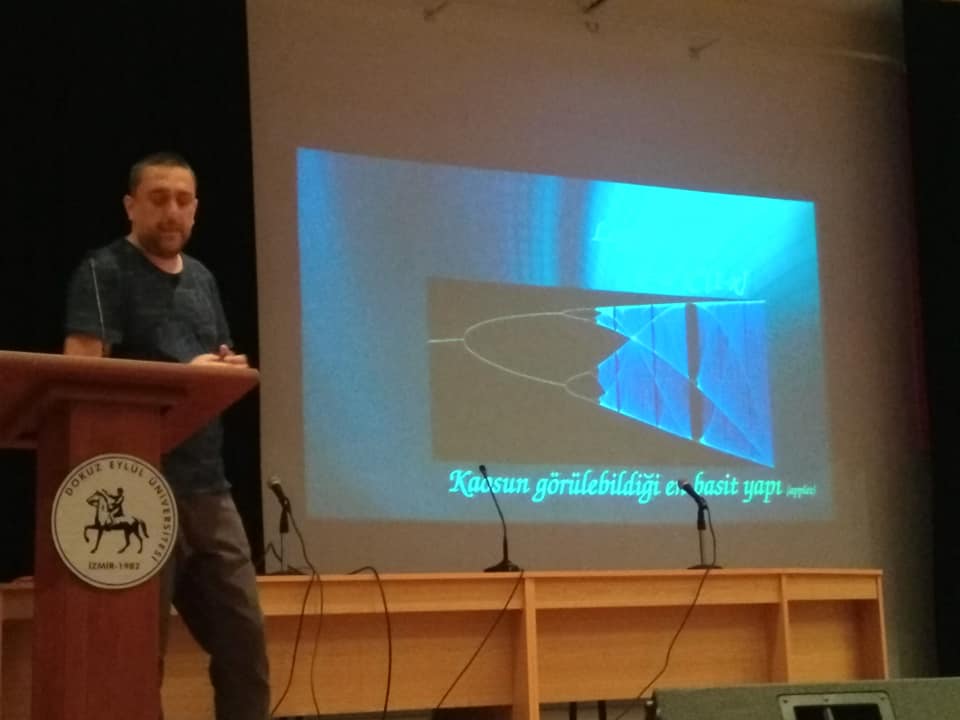Faculty Seminars – 1
Faculty Seminars – 1 (20.06.2019 Thursday)
09:30–10:30: Prof. Dr. Aylin Alın – Statistical Learning
Abstract: Statistical learning is a branch of applied statistics that emerged in response to machine learning, emphasizing statistical models and assessment of uncertainty. Using the statistical learning methods, we can recommend items based on someone’s shopping profile, predict an employee’s wage based on age and education, classify a tissue sample into one of several cancer classes based on a gene expression profile or predict concentration of a drug using absorbance values.
Statistical learning methods are basically classified as “Supervised and Unsupervised Learning Methods”. In this talk, we will explain the difference between supervised and unsupervised statistical learning methods, and starting with linear regression we will summarize some important supervised learning methods which are very popular in natural science applications.
Photographs:


10:45–11:45: Doç. Dr. Ümit Akıncı – Chaos: Patterns Behind Complexity
Özet: In everyday life, most of the scientific concepts are matched with the wrong concepts, just as the concepts of “chaos” and “confusion”. These two are always side by side in everyday life. This is largely due to the fact that well-defined concepts within the jargon of science are more flexible and ambiguous in everyday life. The main axis of this talk is the relationship between “chaos” and “confusion”. “What is the theory of chaos”, and where is the “confusion” in this theory? This will be the main question of this seminar.
In our daily life as well as in our scientific theories and experiments, “chaos” and “order” were immediately revealed to us at the same time. According to science, which is an attempt to understand nature and the universe in order to reveal what is invisible behind what is visible, it is in a full field that continues to look behind the seemingly chaotic. Chaos theory in laying the order behind the chaos in the eyes.
In this seminar, a brief introduction of the statistical physics will be given and its interaction with other disciplines will be discussed. As an example of this interaction, the spin systems that constitute the subject of study of our group (csinss.org) will be emphasized. The main concepts of chaos, which is another broad interdisciplinary subject within statistical physics, will be given and the main lines of discussions such as “chaos and confusion”, “chaos and determinism” will be presented.
Photographs:


Events Calendar
| M | T | W | T | F | S | S |
|---|---|---|---|---|---|---|
|
23
|
24
|
25
|
26
|
28
|
1
|
|
|
2
|
3
|
4
|
5
|
7
|
8
|
|
|
9
|
10
|
11
|
12
|
13
|
14
|
15
|
|
16
|
17
|
18
|
19
|
20
|
21
|
22
|
|
23
|
24
|
25
|
27
|
28
|
29
|
|
|
30
|
31
|
1
|
2
|
3
|
4
|
5
|



